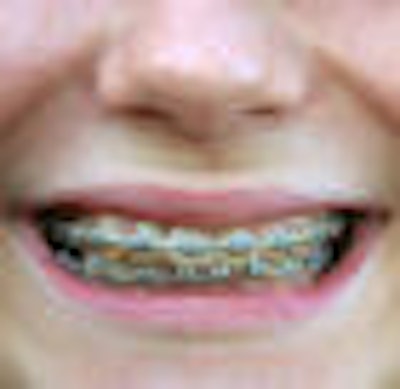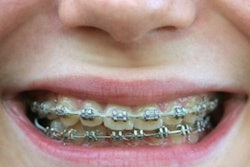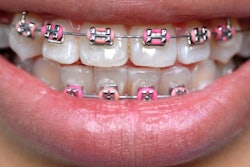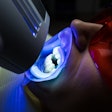
The key to patient satisfaction following orthognathic surgery lies not just in the postsurgery results, but in presurgical conversations between the doctor and patient, according to a study in the American Journal of Orthodontics and Dentofacial Orthopedics (January 2010, Vol. 137:1, pp. 26-34).
The study authors note that research has shown adolescents have a lower level of satisfaction with the outcomes of orthognathic surgery (Journal of Oral and Maxillofacial Surgery, May 2003, Vol. 61:5, pp. 545-552). This led them to consider whether young patients who are more motivated about aesthetic changes and improved function before the surgery are more likely to be satisfied with the outcomes.
Adolescent dissatisfaction
Orthognathic surgery or orthodontic treatment for adolescents requires a lot of effort and a reduction in their quality of life during this time, so it is important that they are satisfied with the outcome, said study author Marita Rohr Inglehart, Ph.D., an associate professor of dentistry at the University of Michigan School of Dentistry, in a DrBicuspid.com interview.
"No research so far was able to find a factor that explains so well which patients will be satisfied with orthognathic surgery and orthodontic treatment and who will not," she said. "This is a completely new way to look at this situation."
Ira Cheifetz, D.M.D., president of the American Association of Oral and Maxillofacial Surgeons (AAOMS), has not observed adolescent dissatisfaction to a great extent, but said that it is possible if the oral surgeon does not properly explain the procedure to the patient.
"Adolescents don't have the same understanding of the necessity of the procedure that an adult might have, so they may need more time to understand," he said.
Inglehart and her colleagues collected questionnaire data from 115 former patients (ages 13-21 at the time of the surgery) and 117 parents (response rates, 41% and 42%, respectively), with responses from 95 patient-parent pairs.
The patients' motivations before surgery were assessed by determining how energized they were by thoughts about themselves after the surgery and how much they had focused on the outcomes. The parents completed a parallel measure of their children's motivation. Patient satisfaction was determined using the postsurgical patient satisfaction questionnaire.
The researchers found that the more emotionally energized the patients had been before the surgery and the more they had focused on aesthetic changes and improved functioning, the more satisfied they were with the outcomes.
"Oral surgeons and orthodontists should discuss with young patients and their parents the patient's motivation during the consultation phase before treatment to assess how energized and focused they are on future outcome," the authors concluded.
The study results also showed that approximately 80% of the patients would re-elect to have surgery if they had to make the decision again, which statistically agrees with past studies.
Presurgery consultation
Richard W. Joseph, D.M.D., an AAOMS spokesperson who has been doing this surgery for many years, noted that while this study agrees with previous research that 80% of patients would re-elect to have this surgery, what's new is that it focuses specifically on adolescents. He agreed that patients need to be motivated before the surgery.
Orthognathic surgery is not like removing wisdom teeth or treating gum disease, Dr. Joseph noted. "Since you are changing people's appearance you might have unhappy patients," he said.
“This particular procedure is not something you decide on a Wednesday and do on a Friday.”
— Ira Cheifetz, D.M.D., president of the
American Association of Oral and
Maxillofacial Surgeons
Although the surgery is done primarily to correct function, for patients, aesthetic changes are more important, he added.
"Basically, even if a patient has a favorable functional improvement but not an aesthetic one, they tend to not be happy," he pointed out. "Usually, people go to an orthodontist because they don't like the way they look, not because they are thinking about their chewing."
Dr. Joseph also agreed with the study authors about the importance of a thorough consultation before surgery. He conducts three to four hour-long consultations to review outcomes and possibilities with patients, and shows them computer images of what they will look like postsurgery.
Why does patient satisfaction and consultations warrant so much attention in orthognathic surgery?
According to the research, about 80% of patients would re-elect surgery, which means 20% would not, and that number is significant enough, Dr. Joseph noted.
"Nobody likes unhappy patients," he said.
Dr. Cheifetz agreed that extensive planning and consultation sessions are necessary before this surgery. "This particular procedure is not something you decide on a Wednesday and do on a Friday," he said.
However, the aesthetic changes are usually the result of a functional correction, and patients need to understand that, he noted. "Most oral surgeons are doing these surgeries to make functional changes that can lead to aesthetic changes."
Reluctant patients
Dr. Joseph said he would not do this surgery if a patient were not motivated.
"I tell the parents that if this child is not invested, let's put this surgery off until he or she has more appreciation for it," he said.
Inglehart agreed, noting that if a patient is somewhat motivated, their motivation can be increased by focusing the patient on desirable outcomes and getting the patient excited about the potential outcomes. A good provider makes sure that he or she knows why the patient wants surgery or braces, she said.
"Establishing clear expectations is definitely part of a provider's interaction with a patient," she said. "The ultimate value is improved patient cooperation, such as not missing appointments, being on time for appointments, engaging in solid oral hygiene efforts, wearing rubber bands as told, etc."
Dr. Cheifetz believes that if a patient is hesitant about surgery, it is important to explain the ramifications of not performing the procedure. Adolescents need to understand that a long-term goal is involved, he explained.
"Younger patients have a different focus in life and need to be managed differently," he concluded.
Copyright © 2010 DrBicuspid.com



















